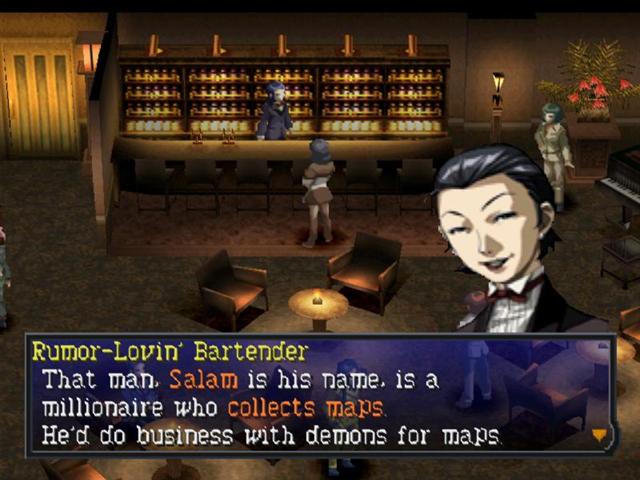Hmm.
While I certainly get what you're talking about, I still felt Kanji was gay and just struggling and confused.
He is in HS, after all, and I would imagine that coming out in HS isn't a thing in Japan like it is here now. And it certainly wasn't a thing when I was in HS, so I can relate to it.
Naoto certainly added to that confusion, and yeah, kind of gave him an out.
But given that shadows are canonically their true selves and his was pretty unequivocally gay, I think that's actually probably the most accurate interpretation and everything else is about teenaged confusion and identity.
So, if anything, I feel like his "feminine" hobbies might be the worst part of his representation. Because Japan can't seem to imagine a normal guy who likes traditionally "masculine" things could also be gay.
This is also informed by my own experiences in Japan, too.
Just in every instance where I felt safe coming out to someone Japanese they've always been shocked, because I don't fit the stereotype their media has been feeding them their entire life.
So fo you believe that Rise wants to be a stripper? That that is her true self? You have to under that logic. You have to also believe that Chie's true self is being a bully, Teddie's is being a nihilist, etc. It doesn't hold up.
Contrary to what the Shadows yell at the protagonists, they are NOT the true selves. They represent a person's innermost fears, which they refuse to admit to themselves, but are not the true selves themselves. Those are their Personas, which they obtain after they no longer run from their fears but admit to them and face them head-on. That is also why, when they not only stop denying and admit to those fears, but begin to successfully conquer them even more so through social links, their Personas evolves.
Their Shadows are just the fears they refuse to admit to themselves. Once they admit to them, the Shadow selves disappear and they awaken their Personas, which are the representations of their true selves, not their Shadows. That just doesn't hold up at all no matter what bullshit the Shadows try to feed them.
EDIT: And Kanji being gay just never made much sense to me and kind of undermines his entire social link. The whole point, as you find out, is Kanji misunderstanding his father's dying words about him being a real man. That's why he dyes his hair blonde, focuses on physical strength and hates people who pick on children and the weak and use physical force to fight them back, in addition to being ashamed of his more feminine hobbies and interests like sewing. Because as a stupid teenager, he thinks that type of thing is what it means to be a real man. Y'know, basically toxic ideas of masculinity, which he then learns to overcome and realized what his dad really meant as his social link progresses.
Kanji struggling with stuff like his interests in feminine hobbies and whether that makes him gay or less of a man or whatever all has to do with his struggle against toxic ideas of masculinity and what it really means to be a man, not be hints that he's gay. That's just missing the point of what's going on at all and would, ugh, at least in part validate Yosuke's bullying of him to an extent ("aha, I knew all that stuff meant you were gay! Get away from me you freak!").
Of course, to be clear, Yosuke's an absolutely terrible jerkward regardless and there:s absolutely nothing wrong with having both feline interests AND being gay or being a flamboyant stereotype. That's perfectly valid and there's nothing wrong with that, and fuck anyone who says otherwise (and to be clear with where I stand on this not only feminine but also flamboyant gays definitely deserve representation as well, since there are real people like that. They shouldn't be the only representation, but as long as that's kept in mind, there's nothing inherently wrong with such depictions in media). But that just doesn't seem to have anything to do with Kanji's character arc, which has to deal with toxic ideas of masculinity and him being gay kind of distracts from that in my opinion and moves aeay from why he's so bothered by people finding out about his hobbies and being confused as to how to deal with that. It all has to deal with him dealing with his father's last words and figuring them out, and not whether he's gay or not, and such a topic is definitely worthy of consideration all by itself especially since do many problems can stem from ideas from those just as they do for Kanji. Everything stems from there.



